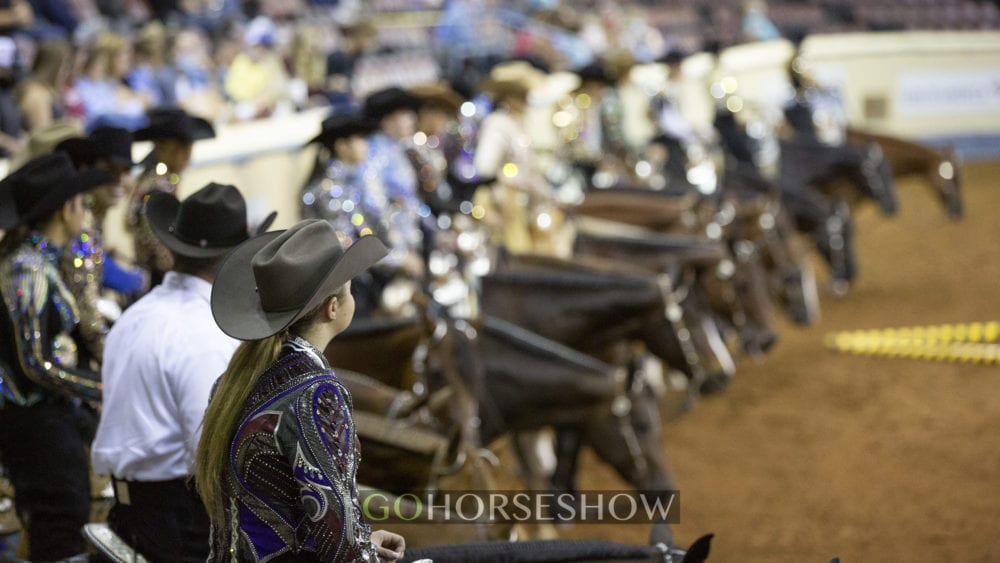Switching programs is a challenging transition that many exhibitors face at least once in their show careers. It is pretty much a given that these situations are tense and awkward and correctly handling the switch is of utmost importance, to both exhibitor and ex-trainer.
Exhibitors decide to leave programs for various reasons, but the common factor is the need for change. Relationships between trainers and clients can become very personal so separating the friendship from the business will help make the transition more fluid. The horse show world is small, therefore keeping interactions civil is essential.
We asked industry professionals for some of their biggest “must-dos” for exhibitors who make the tough choice to switch training programs.
Communicate
Communication is key. Conveying your feelings makes the split easier to navigate. Be honest, explain your reasoning, and express these thoughts sincerely.
Jennifer Wheeler of Wheeler Performance Horses comments, “Make sure you communicate to your current trainer that you plan to make a move, give proper notice, so they are not financially impacted without the knowledge and also give them feedback.”
Respect
Respect your former program, your horse, and yourself. This is the foundational element when deciding to change trainers. Losing this value can lead to more frustration and hostile situations down the road. Respect is a two-way street in any relationship. If you do not feel a mutual level of respect, it is time to switch your program and maintain your integrity.
Respect also plays a critical role between trainers. AQHA judge and Professional Horsewoman, Michelle Tidwell, says, “The trainers of each program usually call one another. This is where mutual respect comes among trainers. I feel this phone call also helps the trainer receiving the horse to gain valuable information on the horse.”
Keep it classy
Handle the transition with maturity and poise. Do not blast on social media, send angry messages, or bad-mouth the other person. It is often a struggle to maintain class through tense situations, but it will ultimately make the split easier.
Wheeler adds, “I strongly encourage clients that make a change to a new program to also not speak negatively about your previous program. Carrying dramatic baggage into your new barn family is only going to keep that negative cloud around you. Keep it classy.”
Feel confident in your decision
Everything happens for a reason. Changes, even the challenging ones, are a necessary part of life. Changing training programs can be a scary new adventure, but be confident in your choice. As one door shuts, another will open with even more opportunities.
It is crucial to make sure that the new program is right for you. Tidwell adds, “ No matter the reason for switching training programs, you need to make sure that the program you are moving to is the right place for you and your horse. Make sure that the trainer excels in the events you want to compete in. Also, make sure that you know the changes in day-to-day operations, such as lesson times and how many lessons you will receive per month.”
Write down your goals
Often exhibitors change programs when their goals cannot be met in their current situation. Therefor, it is important to write down your goals so they are clear and concise. Envision where you want to see yourself in a year and how you plan to achieve that. Take these ideas to your new program to set a clear game plan.
Wheeler states, “As a competitor and owner, you have to decide what you want for your own goals and then choose a program that can accommodate you properly.”
Smile and say “hi” at shows
Switching programs can make horse shows awkward, which is uncomfortable for both parties. A simple “hi” or even a smile indicates that you are not holding any bad energy. This will make everyone’s experience much more enjoyable.
“Sometimes a move seems like a big deal,” says Tidwell. “But at the end of the day, it all works out smoothly if handled correctly.”
Focus on your progress and be thankful
Focus on you and your horse’s wellbeing, happiness, and progress. Everyone is entitled to their own opinion, but the only opinion that truly matters is your own. Life is too short to dwell on drama or stress. This becomes even more important when going through challenging transitions such as switching programs.
It is important to be thankful for the knowledge you have obtained from previous programs that allows you to progress. “Every trainer you choose to ride with or work with can teach you something,” says Wheeler regarding the value of learning. “Take away what they helped you with and move on to whatever it is you’re looking for with thankfulness in your heart.”
Prioritize what is best for you and your horse
You need to do what is best for you and your horse. Riders owe it to their equine teammate to be his or her advocate. Deciding between switching programs can be a very challenging task, but it becomes more comfortable when you prioritize correctly.
Wheeler advises, “Ask a lot of questions. A training program is more than just someone riding your horse. Make sure they are good at coaching and at running a business. Some good questions to ask are, do they take good care of their horses? Are they shod properly? Do they have a sports medicine program? Do you like their employees and staff? These are important questions, in my opinion.”
***
When switching programs, multiple individuals’ emotions and feelings come into play. People change, priorities shift, and sometimes the program you are in just does not feel right anymore. Do what is best for you and your horse. If you feel a lack of progress with your current program, it may be time to start the conversation. Taking the appropriate steps through the “switch” will inevitably lead to a smoother transition.









